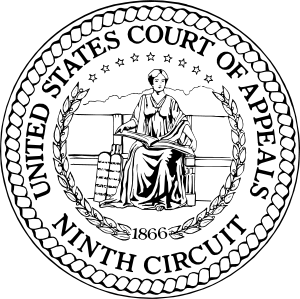
Ninth Circuit Limits Bankruptcy Jurisdiction in Fraudulent Conveyance Cases
The Ninth Circuit Court of Appeals recently held that a bankruptcy judge does not have jurisdictional authority to enter a final judgment in a fraudulent conveyance action against a non-claimant to a bankruptcy estate. See Executive Benefits Insurance Agency v. Arkison (In re Bellingham Insurance Agency, Inc.), No. 11-35162 (9th Cir. Dec. 4, 2012). Such Circuit level opinion has long-been expected.
Brief Facts
Bellingham Insurance Agency, Inc. (“Bellingham”) sold insurance and annuity products that funded defined-benefit plans, which were administered by an affiliate, Aegis Retirement Income Services, Inc. (“Aegis”). By early 2006, Bellingham was insolvent and ceased operating. After the cessation, Bellingham used its own funds to incorporate Executive Benefits Insurance Agency, Inc. (“EBIA”), a separate entity doing the same type of business. In addition, Bellingham assigned insurance commissions it had earned from one of its largest clients to Aegis. Approximately $123,133.58 of such commissions were received and kept by Aegis and $250,000.00 went to EBIA.
Shortly after it ceased operations, Bellingham filed a chapter 7 bankruptcy case in which a chapter 7 trustee was appointed. Thereafter, the trustee filed a complaint against EBIA and Aegis to recover the commissions that Bellingham had previously assigned. The trustee’s primary claim was that the assignment constituted a fraudulent transfer under federal and state law, as Bellingham was insolvent when the assignment was made and it received no value for the assignment.
The Bankruptcy Court concluded that the assignment did constitute a fraudulent conveyance under federal and state law, and accordingly entered a judgment in favor of the trustee, in the amount of $373,291.28. On appeal, the District Court affirmed the judgment. On further appeal, relying on the recent Supreme Court decision of Stern v. Marshall, 13 S. Ct. 2594 (2011), EBIA, for the first time, filed a motion to dismiss the trustee’s suit and vacate the judgment, on grounds that the Bankruptcy Court lacked subject matter jurisdiction to enter a final judgment in a fraudulent transfer suit.
Judge’s Role
Bankruptcy judges are appointed for terms of 14 years and their salaries are subject to Congressional diminution. See 28 U.S.C. §§ 152(a)(1), 153(a). Hence, bankruptcy judges cannot exercise “[t]he judicial Power of the United States,” which is vested by the Constitution in courts whose judges enjoy life tenure and salary protection. See U.S. Const. art. III, § 1.
Nonetheless, bankruptcy judges enjoy substantial statutory authority. Although federal district courts have exclusive jurisdiction over “all cases under title 11” they may refer all of the cases within that broad jurisdiction to bankruptcy judges. See 28 U.S.C. §§ 1334(a), 157(a).
What the bankruptcy court may do with a given referred proceeding depends on whether the proceeding is denominated a “core” or a “non-core” proceeding. In all “core proceedings arising under title 11, or arising in a case under title 11,” a bankruptcy judge has the power to “hear and determine the controversy” and enter final orders, subject only to appellate review. See 28 U.S.C. § 157(b)(1). In a non-core proceeding “that is otherwise related to a case under title 11,” a bankruptcy judge may only “submit proposed findings of fact and conclusions of law to the district court.” Id. § 157(c)(1). The entry of a final judgment in non-core proceedings is the sole province of Article III judges.
Section 157(b)(2) enumerates sixteen nonexclusive examples of “core” bankruptcy matters. Among these are “proceedings to determine, avoid, or recover fraudulent conveyances.” See 28 U.S.C. § 157(b)(2)(H). Thus, it appears that the Bankruptcy Court in the Bellingham case was clearly empowered by statute to enter a final judgment.
Prior Law
The Ninth Circuit had previously held that a bankruptcy court had subject matter jurisdiction over bankruptcy proceedings that are listed as “core” matters in 11 U.S.C. § 157(b), because such matters fell within the public right’s exception to the exclusive jurisdiction afforded to Article III courts under the U.S. Constitution. See In re Mankin, 823 F.2d 1296, 1308 (9th Cir. 1987).
In the Bellingham case, however, the Ninth Circuit acknowledged the demise of the Mankin opinion, based on two subsequent Supreme Court decisions that, according to the Ninth Circuit, lead to the conclusion that fraudulent conveyance claims could no longer be adjudicated by non-Article III judges. Citing Granfinanciera, S.A. v. Nordberg, 492 U.S. 33 (1989); Stern v. Marshall, 13 S.Ct. 2594 (2011).
Supreme Court Decisions
In Granfinanciera, the Supreme Court considered whether a non-claimant to a bankruptcy estate has the right, pursuant to the Seventh Amendment to the Constitution, to a jury trial when sued by a bankruptcy trustee to recover fraudulent conveyances pursuant to section 548 of the Code. See 492 U.S. at 36. Because Congress had designated fraudulent conveyance actions as “core” proceedings, which bankruptcy judges could decide, the Supreme Court defined the issue as “whether the Seventh Amendment confers on petitioners a right to a jury trial in the face of Congress’ decision to allow a non-Article III tribunal to adjudicate the claims against them.” Id. at 50. This issue required the Supreme Court to construe the public rights exception, because “Congress may only deny trials by jury in actions at law . . . in cases where ‘public’ rights are litigated.” Id. at 51.
The Supreme Court’s answer to this question was that “[a]lthough the issue admits of some debate, a bankruptcy trustee’s right to recover a fraudulent conveyance under 11 U.S.C. § 548(a)(2) seems to us more accurately characterized as a private rather than a public right as we have used those terms in our Article III decisions.” Id.
Based on Granfinanciera, the Ninth Circuit had previously noted that fraudulent conveyance actions are not matters of public right, and that a non-creditor retains a Seventh Amendment right to a jury trial on a bankruptcy trustee’s fraudulent conveyance claim. Nonetheless, the Ninth Circuit acknowledged that there existed differing interpretations from other jurisdictions, including the Fifth, Tenth and Eleventh Circuit Courts of Appeal, that casted doubt on its interpretation of Granfinanciera. In the Bellingham case, the Ninth Circuit finally concluded that the Stern v. Marshall opinion now solidified its prior interpretation of Granfinanciera, irrespective of what other Circuits held.
The issue in Stern was whether a bankruptcy court could enter a final judgment on a challenged proof of claim and on the debtor’s compulsory counterclaim, which was based on a state-law cause of action for tortuous interference with a gift expectancy. See 131 S. Ct. at 2601. The Supreme Court held that the bankruptcy court did not have authority, because the debtor’s “counterclaim [could not] be deemed a matter of ‘public right’ that [could] be decided outside the Judicial Branch.” Id. at 2611. In its reasoning, the Supreme Court explained that the state-law counterclaim at issue in Stern was indistinguishable from the fraudulent conveyance claim in Granfinanciera. Id. at 2614.
As a result, the Ninth Circuit concluded that “[the] common character of the claims in Granfinanciera and Stern means that neither can be consigned to the bankruptcy courts without doing violence to the constitutional separation of powers.” Accordingly the Court found that the trustee’s fraudulent conveyance claims in Bellingham were not matters of public right that could be adjudicated outside an Article III court.
Authority to Hear
The Ninth Circuit then addressed the important question of whether bankruptcy judges could constitutionally hear fraudulent conveyance claims and prepare recommendations for de novo review by federal district courts.
In general, federal law authorizes bankruptcy judges to “hear and determine all cases under title 11 and all core proceedings arising under title 11, or arising in a case under title 11.” 28 U.S.C. § 157(b)(1). Bankruptcy judges have the narrower power to “hear” a proceeding that is not a “core” proceeding but that is otherwise related to a case under the Bankruptcy Code and to submit proposed findings of fact and conclusions of law to the district court, which would then be responsible for entering a final judgment. Id. § 157(c)(1). Significantly, nowhere in this framework is a bankruptcy judge authorized to submit proposed findings of fact and conclusions of law in a “core” proceeding under section 157(b).
Because the Ninth Circuit held that the Constitution precluded bankruptcy courts from entering a final judgment in fraudulent transfer cases, it was forced to find another way that authorized bankruptcy courts to, at least, hear such cases and propose recommendations to district courts. Relying on the legislative history of section 157(b)(2), which sought to expand the bankruptcy court’s jurisdiction, the Ninth Circuit found that it would be illogical not to afford bankruptcy courts with, at least, authority to “hear and determine” such “core” proceedings and thereafter submit proposed findings and conclusions to a federal district court.
Pyrrhic Victory
Even though EBIA, the appellant, prevailed on its jurisdictional arguments, the Ninth Circuit ultimately held that EBIA had waived its right to have a hearing in an Article III court. The Ninth Circuit started with the premise that the Bankruptcy Code unequivocally authorizes a bankruptcy court to conduct a jury trial with the consent of the parties. See 11 U.S.C. § 157(c)(2). The Court next determined that “if consent permits a non-Article III judge to decide finally a non-core proceeding, then it surely permits the same judge to decide a core proceeding in which he would, absent consent, be disentitled to enter final judgment.”
The only remaining question, then, was whether EBIA did, in fact, consent to the bankruptcy court’s jurisdiction. According to the Ninth Circuit, EBIA consented when it petitioned the District Court to stay consideration of a motion to withdraw the reference in order to allow the Bankruptcy Court to determine a pending motion for summary judgment filed by the chapter 7 trustee. The Ninth Circuit found that “EBIA did not simply fail to object to the bankruptcy judge’s authority to enter final judgment in the fraudulent conveyance action; it affirmatively assented to suspend its demand for a jury trial in district court to give the bankruptcy judge an opportunity to adjudicate the claim.”
Moreover, EBIA later abandoned its motion to withdraw the reference, in favor of an appeal of the judgment to the District Court, and did not raise a constitutional objection to the bankruptcy court’s subject matter jurisdiction until after the briefing in the Ninth Circuit appeal was completed. Because EBIA waited so long to object, and in light of its litigation tactics, the Ninth Circuit had little difficulty concluding that EBIA impliedly consented to the bankruptcy court’s jurisdiction.
Conclusion
The sage bankruptcy professionals who have long predicted that the Supreme Court’s decision in Stern v. Marshall would have a significant impact on the future of bankruptcy proceedings must now feel validated. It remains to be seen, however, whether other Circuits will follow the Bellingham opinion or whether they will ascribe to the cases that believe the holding in the Stern case is limited to one type of “core” matter listed in section 157(b) of the Code.
Related articles
- The Stern Saga Continues (chapter7trustee.net)






